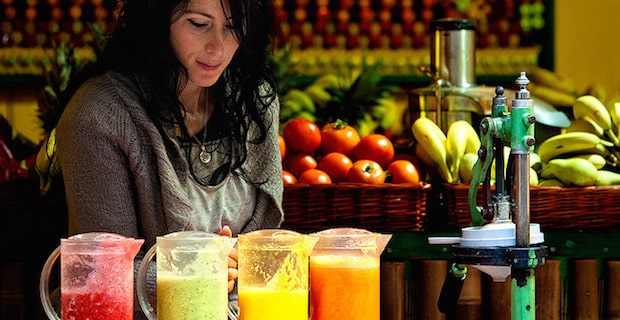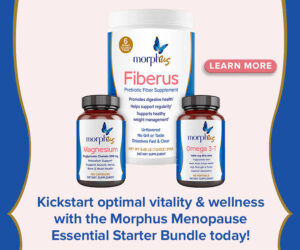
The liver is one of the body’s largest and most vital organs.
The liver performs over 500 functions, holds about 13% of the body's blood supply at any given moment and filters over 1 liter of blood each minute! It is involved in the production of over 13,000 different chemicals and maintenance of over 2000 internal enzyme systems. It makes blood proteins, clotting proteins, lipoproteins, and 80% of our cholesterol. It filters blood, makes bile, makes and breaks down hormones, regulates blood sugar, and changes harmful toxins into substances that can be safely eliminated from the body. And this is just a small list of liver functions! If we lost this handy organ, we would die within 24 hours – so let’s take good care of it.
How the Liver Works
The liver detoxifies the body through a two-phase system, and to work properly, each of these phases needs specific vitamins, minerals, phytochemicals and amino acids.
Read more about detoxifying your body
During Phase I, toxins are neutralized and released into bile or made water-soluble so the kidneys can excrete them in the urine. When necessary, toxins are converted into more chemically active forms called active intermediaries, which can be more toxic than the original substance, and quite damaging if not promptly eliminated. The toxins are then converted a second time where they are combined with mineral compounds, amino acids, or other biochemicals that are water-soluble.
Phase II liver detoxification involves a process called conjugation, in which toxic substances are bound to other substances before being safely eliminated through bile or the kidneys and bladder. This phase detoxifies drugs, harmful food additives, and toxins from intestinal bacteria. It also eliminates steroid hormones, estrogen and thyroid hormones so they do not overload the body.
Foods to Help with the Detoxification Phases
It is important to get rid of or reduce free radicals during Phase I liver detoxification and there are many different antioxidants and phytochemicals that can help with this process. Foods that contain antioxidants and phytochemicals are fruits, vegetables and whole grains.
One of the most important antioxidants is an amino acid called glutathione. Glutathione is made by the body and found naturally found in foods such as garlic, onions, asparagus, watermelon, papaya, avocados and mushrooms.
During Phase II, foods high in sulfur compounds are needed to convert harmful chemicals into water-soluble substances. These would be foods such as cabbage, Brussels sprouts, broccoli, cauliflower, kale, turnips, lentils, beans, peas, garlic, onions and egg yolks.
Read more about organic sulfur
Chlorophyll can protect you from carcinogens like no other food or medicine can. It strengthens your cells, detoxifies your liver and bloodstream and chemically neutralizes polluting elements. Chlorophyll adds oxygen into the blood that is essential for optimal liver function and rejuvenation. One of the richest sources of chlorophyll is chlorella.
Full List of Foods to Support the Liver
- Dark green, leafy vegetables and orange, yellow, purple, and red colored fruits and vegetables contain living enzymes, fiber, vitamin C, natural antibiotic substances, and anti-cancer phytonutrients.
- Bitter foods like dandelion greens, mustard greens, bitter melon, Romaine lettuce and broccoli help to cleanse the liver.
- Herbs like dill, caraway seeds, garlic, onions, turmeric and cayenne can help protect the liver and are easy to use in cooking.
- Fruit and vegetable juices help to cleanse the liver. Some good choices are fresh green apple juice, grapefruit juice, cabbage juice, carrot juice, juice from dark leafy vegetables and wheat grass juice.
- Sea vegetables like wakame, kombu and hijiki as well as algae-type foods, such as spirulina and chlorella contain alginates which have been shown to protect cells from environmental toxins and radiation.
- Nutritional yeast provides liver support and is an excellent source of protein, B vitamins and folic acid.
- Lecithin granules help with fat metabolism and liver disease such as alcoholic fatty liver.
- Warm water with lemon every day will help cleanse the liver and assist the kidneys with elimination of toxins that the liver has broken down.
Helpful Supplements
- Vitamin C – antioxidant
- Beta-carotene -Vitamin A – antioxidant
- Vitamin E – antioxidant
- B-complex vitamins – aids in liver detoxification.
- Methionine – increases the fat removal in the liver.
- Zinc – important to the structure of cell membranes.
- Magnesium – essential in detoxification and energy production.
- Selenium – important in glutathione production, and a powerful antioxidant.
- Glutathione – major antioxidant and free-radical scavenger. Found in fresh fruits and vegetables.
- R+ Alpha Lipoic Acid – Aids in liver repair, protection and cellular regeneration.
- N-Acetyl-Cysteine – Helps the liver convert toxic substances, converts into glutathione and prevents glutathione depletion during toxic overload.
Read: Are Your Herbal Supplements Contaminated?
Helpful Herbs
- Dandelion (leaf and root)
- Garlic
- Bupleurum
- Oregon grape root
- Burdock root
- Turmeric
- Astragalus
- Milk Thistle (Silymarin)
- Licorice Root
- Yellow Dock
- Chlorella
- Nettles
- Black Radish
- Artichoke Leaf
The better we take care of our liver, the better it will take care of us. Cholesterol and blood sugar levels will improve, hormones will balance, skin will clear up, energy will be restored and you will just feel better. The liver is worth a little attention. That’s why it’s called LIVE-R!
Image: Paco CT
References
Balch, Phyllis A. (2006). Prescription for Nutritional Healing, 4th Edition. New York, New York: Avery.
http://www.nutrilligence.com/programs/liver_health2.html










